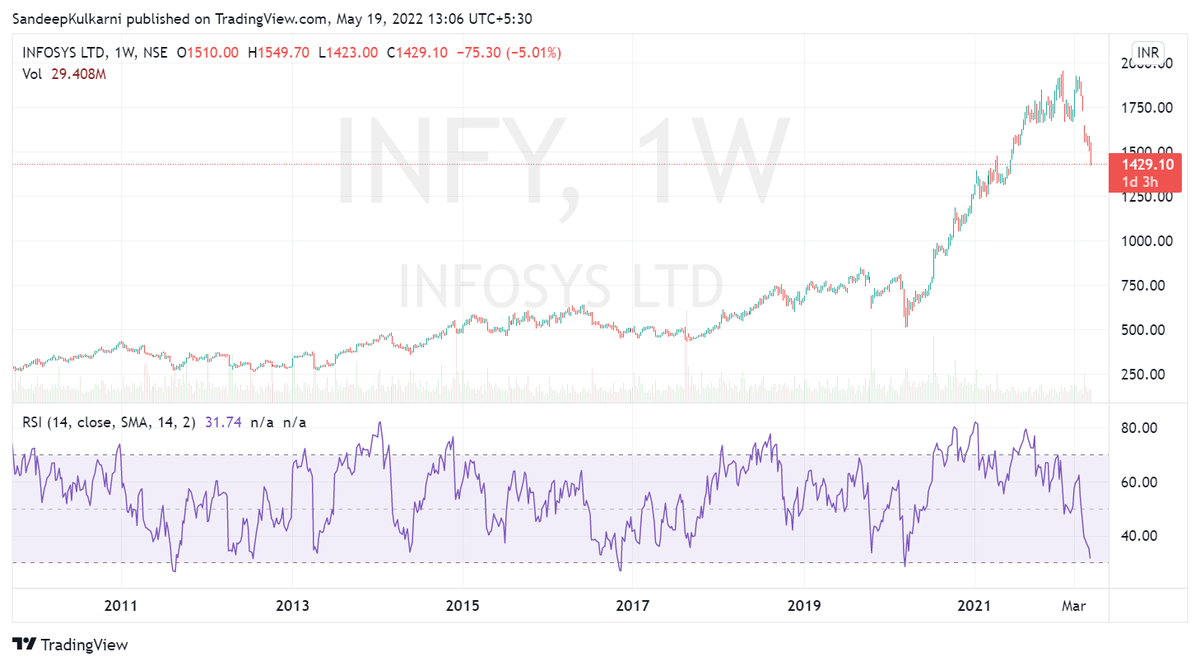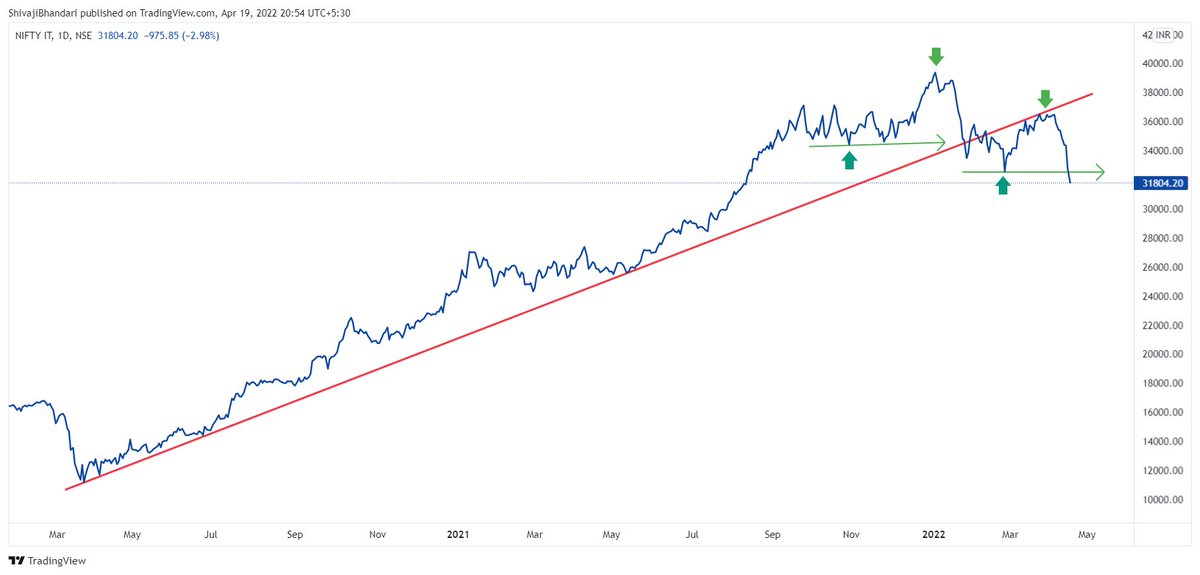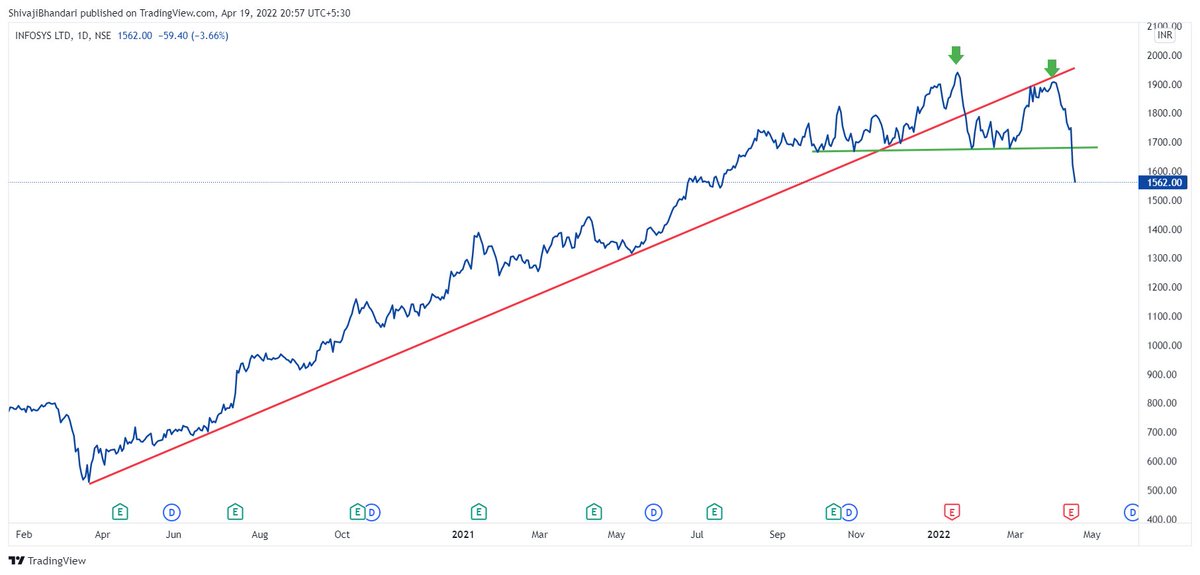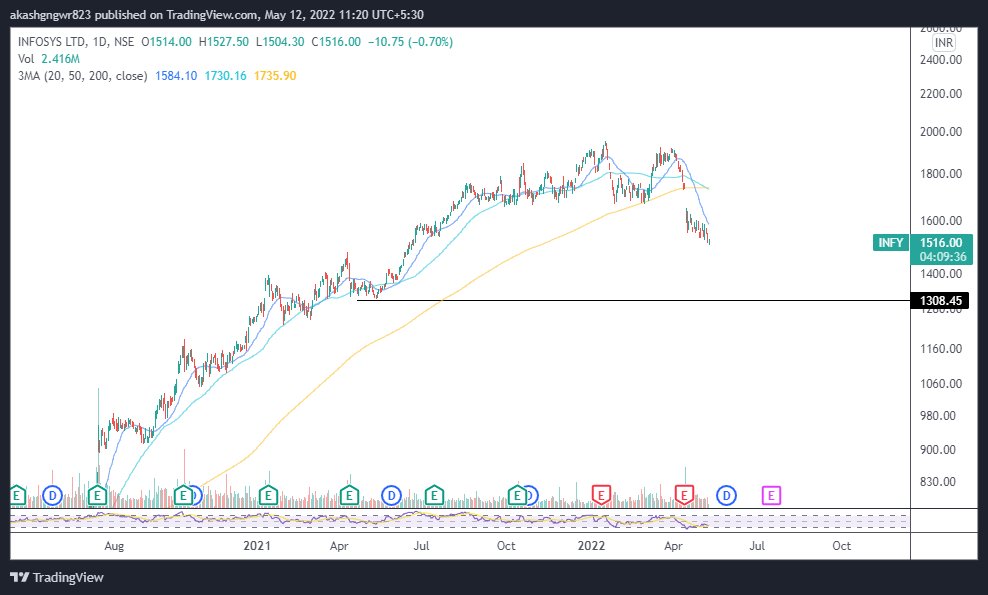#Infosys Biggest Falls
Apr 15, 2011---9.58%
Aug 18, 2017---9.56%
Mar 16, 2020--9.22%
Jul 15, 2016----8.82%
Mar 13, 2014--8.54%
Jul 12, 2012----8.36%
Jan 12, 2012---8.43%
Mar 12, 2020--7.99%
May 29, 2014--7.84%
Apr 18, 2022--7.84% (Today)
It has Seen Much worst Days
More from Infylongterm
1.6x PEG on forward PE is not cheap for most stocks but this is Infy...Pristine quality.
Infosys PEG ratio (1-year fwd PE/EPS growth) down to 1.4x from a peak of 2.7x as PE cut by 27% & EPS growth cut by 5% - trades at 23.3x PE for 11% FY23 growth. If this is a mid-cycle correction, its done BUT if this is the great valuation reset - more fall coming
— ThirdSide (@_ThirdSide_) May 25, 2022
Place your bets pic.twitter.com/9ZlaLDcxPZ






























